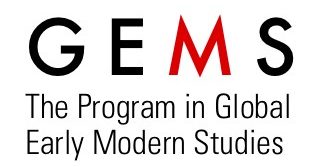
Due Mar 2 | Folger programs
An Orientation to Research Methods and Agendas
Marcy North, Claire M. L. Bourne, and Whitney Trettien
Summer Intensive Skills Course at Pennsylvania State University
The best research is based on inquiry and allows for serendipity. A scholar needs to sharpen research questions and search skills simultaneously and with sensitivity to the ways questions and sources affect each other. The available evidence may invite a new thesis, require a revised approach, or even suggest a new field of exploration. This intensive week is not designed to advance participants’ individual research projects. Rather, it aims to cultivate the participants’ curiosity about primary resources by using exercises that engage their research interests. It is offered to help early-stage graduate students develop a set of research-oriented literacies as they explore Penn State’s special collections in ways that will be useful for navigating other collections. With the guidance of visiting faculty and curatorial staff from the Folger and Penn State Libraries, up to two dozen participants will examine bibliographical tools and their logics, hone their early modern book description skills, learn best practices for organizing and working with digital images, and improve their understanding of the cultural and technological histories of texts. Participants will ask reflexive questions about the nature of primary sources, the collections that house them, and the tools whereby one can access them.
Organizers: Marcy North is Associate Professor of English at Pennsylvania State University and author of The Anonymous Renaissance and numerous articles on early print, manuscript, and women’s writings. She has directed a previous Folger seminar and participated in the Folger’s Teaching Paleography and Advanced Paleography workshops. She is finishing a book on the intersection of labor and taste in the production of post-print manuscripts. Claire M. L. Bourne is Assistant Professor of English at Pennsylvania State University. She is the author of Typographies of Performance in Early Modern England (forthcoming), which was supported by a long-term Folger fellowship, and is currently editing 1 Henry the Sixth for the Arden Shakespeare (4th series). Whitney Trettien teaches digital humanities and book history at the University of Pennsylvania, where she is Assistant Professor of English. She is the author of Cut/Copy/Paste, a hybrid monograph on digital book history currently being staged on Manifold Scholarship through University of Minnesota Press.
Schedule: Monday through Friday, 9:30 a.m. – 4:30 p.m., 1 – 5 June 2020.
Apply: 2 March 2020 for admission and grants-in-aid. This skills course is intended for students in the early years of graduate work. In addition to following the general application guidelines, applicants for this course should describe a research question, the motivating reason to look to primary sources to answer this question, and any previous experience with early modern materials. If a participant is able to arrange for one graduate credit on the home campus under the direction of an on-campus advisor, the Institute will certify participation.
Making Meaning: Hands-on Basic Paleography and Book Production
Margaret J.M. Ezell and Kevin M. O’Sullivan
Summer Intensive Skills Course at Texas A&M University
Integrating traditional seminar-based discussion with experiential inquiry, this course will investigate the physical means of knowledge production during the early modern period. Daily lab sessions concentrating on historical book production will include hands-on exercises in allied trades such as typecasting, papermaking, ink-making, typesetting, and hand-press printing. In addition to this print-oriented praxis, participants will also experience manuscript production through experimentation with contemporary writing materials such as goose quills and iron gall ink as part of their paleography work. Throughout the week, guided discussions of assigned theoretical readings will synthesize issues raised by the hands-on practice within a wider theoretical framework on media intersections. The course will seek to demonstrate the ways technologies of textual production drove meaning-making in the early modern period and foster an understanding of the rich interrelations between the manuscript tradition and renaissance printing. Equipped with these skills, participants will be able not only to read and analyze the texts, but to locate their place in the larger context of early modern written culture.
Directors: Margaret J.M. Ezell is Distinguished Professor of English and the John and Sara H. Lindsey Chair of Liberal Arts at Texas A&M University. In her most recent work, the Oxford English Literary History, Volume V: 1645-1714, the Later Seventeenth Century, she offers an alternative model of literary history exploring how oral traditions, handwritten manuscript practices, and print media intersected and influenced each other. Kevin M. O’Sullivan is Curator of Rare Books and Manuscripts for the Cushing Memorial Library & Archives at Texas A&M University, where he also serves as the Director of the Book History Workshop. He is a founding partner of the 3Dhotbed Project, a collaborative digital humanities effort that seeks to enhance book history instruction through 3D technologies. They will be joined by Heather Wolfe (Curator of Manuscripts and Associate Librarian of Audience Development at the Folger Shakespeare Library).
Schedule: Monday through Friday, 9:30 a.m. – 4:30 p.m., 13 – 17 July 2020.
Apply: 2 March 2020 for admission and grants-in-aid.




